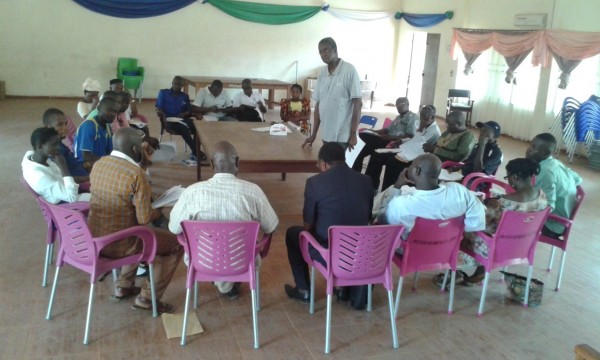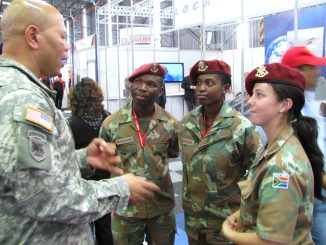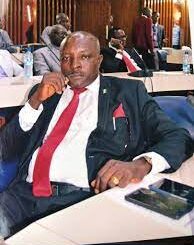
Amadu Femoh Sesay
Communications Officer, IPCB

Focus group Engagement in Pujehun District Council Hall
The Independent Police Complaints Board (IPCB) on Thursday 17th March, 2016 ended its First Round of Focus Group Engagements (FGEs) at District level starting in Kailahun on Monday 14th March, Kenema on Tuesday 15th March, Bo on Wednesday 16th March and Pujehun on Thursday 17th March, 2016.
The aim of the FGE was to sensitize and raise awareness regarding the functions and role of the IPCB. These set of activities at District level, form the third stage in the IPCB’s public outreach following the formal launch on 20thOctober, 2015 and the Regional launches and town hall meetings in Makeni, Bo and Kenema Cities in November last year.
In his introductory statement, the Chairman of the Board, Valentine Collier informed the participants that the IPCB in giving effect to its mandate sees itself as first and foremost, a ‘listening organization’ since a main component of its activities rely on receiving complaints from citizens throughout the country. He pointed out that the IPCB also sees itself as a ‘bridge builder’ working towards bringing the police and the community closer.
Mr. Collier said the IPCB is an independent civilian oversight and investigations body with a national scope and responsibility, operating at arm’s length from the Sierra Leone (SLP), and which investigates complaints about alleged police abuses involving deaths in police custody, police motor vehicle accidents, the excessive use of force involving injury or death, or the use of firearms by police among other things.
The Chairman stressed that the above issues which the Government, in response to the community’s demands, determined that the SLP could no longer investigate itself and which therefore required a new and independent agency to investigate thoroughly and impartially.
“The IPCB where necessary could also recommend disciplinary or criminal proceedings against police officers, or changes to SLP policies and practices, as a means of ensuring that similar incidents could be avoided in the future” he dilated.
Welcoming the participants in each session, the Senior/District Officers reiterated that the IPCB will serve as a bridge between the communities and the SLP. They admonished the gathering to work towards building confidence in the activities of the Board which in time will be tested by the way complaints received from aggrieved persons are dealt with through the process of investigations. They also told the gathering that the establishment of the IPCB was a “laudable initiative and government must be commended for it.
The engagements were characterized by frank and open discussions over two- hour highly interactive sessions centered around the over arching theme of ‘IPCB as trust and confidence builder and, how to ensure justice for all. Topics discussed included Democratic Policing and its benefits to society, Should the IPCB be held to the same standards as the general police services? What internal systems can the IPCB put in place to ensure these values are up held? Communicating with Complainants and Citizen Journalism’.
In all four districts, the participants spoke of the unhealthy relationship existing between the community and the SLP as a result of perceived heavy handedness in police dealings, and they see the IPCB as a means through which justice and fairness will hopefully prevail in matters involving the police and the community. Discussions also revealed acceptance of the negative and anti-social behaviour of elements within communities that contribute towards bad policing through connivance and influencing peddling.
In each district, groups of 25 participants were selected from within the community, including Women’s groups, Civil Society Organizations, NGOs, Traditional Rulers, City/Town Councils, District Administration, Inter-Religious Council, SLP, Traders, Okada Riders Association, Drivers’ Union, Teachers, Schools/Tertiary, among others.
Each session was immediately followed by live radio discussion programmes including phone-ins involving two panelists each from the communities and the IPCB. The radio programmes relayed the issues discussed in each session and opened up further discussions involving the public.
The Second Round of the Focus Group Engagements will take place in Kono, Tonkolili and Koinadugu Districts starting Monday 4thApril, 2016, followed by Port Loko, Kambia and Bombali Districts starting on Monday 11th April and Bonthe and Moyamba Districts starting on Monday 18th April, 2016.
These series of countrywide Focus Group Engagements will be concluded with sessions in the Western Rural and Urban Areas on dates to be announced.



